In a post-SHTF world, there will be trash piling up everywhere, and for the most part, it will stay undisturbed until vegetation takes over.
Every movie portraying the end of civilization depicts cities where garbage is piling up and we see scavengers looking for hidden treasures in those garbage piles. However, the reality may be different than what we see in the movies and the survivalist doesn’t really have the luxury to throw out garbage.
What may seem garbage to some, in a desperate situation, that garbage may have contradictory qualities to others. After all, improvisation is the mother of necessity, and everything can be reused and given a new life, even the garbage you throw out.
The topic of reusing garbage ore recycling it is not covered as much as it should within the prepping communities. It’s one of the sensitive topics that few people bother to think about, let alone talk about it. Some are afraid that reusing their garbage will make them a hoarder in the eyes of others, while others fear that society will isolate and condemn them for their practices.
Re-purposing garbage for survival may seem eccentric in our “modern society,” but this is a common practice in third world countries. As you will see in the following lines, there are many ways you can reuse your garbage, and this is the knowledge you want to acquire before SHTF.
Dumpster diving is already a common practice in our country, and in recent years, there has been an increased number of people having to rely on it just to survive. Not to mention that we see more and more in the news how people living in countries affected by economic collapse (such as Venezuela) are eating whatever they can find in the trash just to survive another day.
For the purpose of this article, we will look at how organic and non-organic waste can be reused when SHTF.
Non-organic Waste
Many American families are recycling their non-organic waste, and it’s a good practice to keep our environment clean. However, when recycling facilities no longer work, we would have to think of ways to reuse this garbage without suffocating our living area. In your household, you are probably recycling a certain amount of glass, plastic, paper, and metal every year. But what would you do with all that waste if you are forced to reuse it?
Glass
It’s obvious that every glass bottle or jar can be used as containers. However, you can also cut these items to make various objects. You can find a lot of info online about turning glass items into drinking glasses, candle supports, toothbrush supports, and whatnot.
Since you cannot fill your house with drinking glasses and you won’t need more than one or two toothbrush supports, you need to find another life for your bottles and jars.
You can use the bottles and jars you recycled for your garden chores and even as building materials. Some people will make a bottle torch, while others will use them as planters. I’ve also seen shelves created from bottles and other furniture. There are also people using them as building materials for Earthships and similar construction projects.
Glass items are also ideal for creating perimeter alarms or traps that will slow down intruders. Broken glass is cemented to the top of brick walls to keep nosey people at bay, and if you top your fence with barb wire, you will have a double layer of security. If you can afford to buy a small kiln or if you are able to build one, you can melt glass and make floor or wall tiles. There are all sorts of possible uses for your glass items.
Plastic
Reusing plastic in a survival scenario is much easier compared to glass. In fact, there are all sorts of projects online teaching you how to reuse plastic items besides their obvious use as containers. Finding a new life for your plastic items is limited only by your imagination. Preppers are making plastic cord from plastic bottles, and it’s the “new thing” on the internet.
All the plastic bottles you have can be used as garden planters, fishing traps, or as building materials to create all sorts of objects. Some can build rafts from plastic bottles, while others can build an entire shelter.
If you have plastic bags, these can be reused for weed control in your garden. You can also use plastic bags to waterproof items, to gather water or to set animal traps. Plastic nowadays is melted and turned into blocks used in construction. Some countries are using plastic to build roads while the modern teenager is using it to 3D print various objects.
Paper
In a survival scenario, most preppers will use paper and other paper products as fire starters and burning fuel. However, I would personally use paper and cardboard as insulators since this is one survival trick I’ve learned from the homeless. They often use newspapers to insulate their clothing and footwear during the cold season. Those that have found an abandoned place and made it their temporary home will often insulate the walls using cardboard and duct tape.
In a blackout scenario where you can no longer heat your home, you can use cardboard to insulate the walls of a room and move everyone inside in order to survive the cold days.
If you like gardening, you can make homemade seed pots, and you can use newspapers for weed protection since its biodegradable.
You can move things up a notch and make papercrete (concrete made from paper) for your building projects. Back in the day, people were stealing phone books and use them inside their shelter to increase protection against home intruders.
However, if you would like to reuse paper or cardboard, I advise you not to store these supplies inside or near your home as it can become a fire hazard.
Metal
This is another versatile resource that can be reused in various ways post-collapse. Metal cans, coat hangers, and pretty much everything you can think of can be reused. All metal containers can be used to store or cook food, but you can also use them to improvise trip wires and alarms.
From coat hangers, you can improvise snares or make various traps to catch small animals. With a little patience, you can use a few coat hangers and improvise a grill to cook your food. If a metal object can be bent, cut, drilled, or melted, then you can reuse it for your projects and give it a new life.
Some preppers have their own foundry at home and their hobbies include making various blades and other items they can sell. Since metal was the main material that helped humans evolve, it will also help us survive long after this civilized world fails us. You can do pretty much everything you want with metal as long as you get the proper knowledge on how to transform it.
Organic Waste
When we talk about organic waste, we should make a clear distinction between the two main categories. These two are human waste and everything else that is biodegradable.
The idea of using human waste is repulsing for some, and from experience, I can tell you that some people don’t like to talk about the “human waste handling business” of prepping. Regardless of how the following lines will make some people feel, I still believe this is something worth mentioning.
Human waste
In ancient times, human urine and feces were used as fertilizer by many cultures, but today, it’s an unpleasant concept for modern people. For most of you, promoting a waste product that people associate with diseases and consider hazardous as a resource to grow your food may seem like a paradox, but even developed countries do it. For thousands of years, China’s farmers have used human manure as fertilizer.
In fact, to recycle human waste is a good method to prevent polluting surface water with nitrogen and phosphorus-rich waste. When gardening centers are closed, you may have to use human waste in your garden since it’s a readily-available and convenient nutrient source for your soil.
If you don’t believe me and you think I might have lost my mind, I encourage you to read the “Humanure Handbook,” and you will learn more about this subject.
In a dog eat dog world, you can use human waste as a deterrent for other humans. I’ve heard survivalists say that they will use human byproducts to conceal their stashes and make cache sites uninviting.
Biodegradable, non-human waste
All the other waste coming from your home that is biodegradable can be reused in an SHTF scenario in two major ways.
As you probably have figured it out by now, the most common one is to turn biodegradable waste into compost. Almost all the organic leftovers from your kitchen can be turned into compost, and this is a common practice in the countryside. Country folks use organic waste to improve the quality of their garden soil and boost each year the gardening season. There is a lot of information online about what can be turned into compost.
The second method of reusing biodegradable garbage is to build a biogas generator that would provide you with energy to power your appliances when the grid is down. This approach is rather new (and complex) for most preppers out there, but it can be done.
Concluding
In today’s world, the consumerism trend is making us dormant and obedient, and we often forget that everything we produce can be reused and repurposed. We are being trained to consume and produce garbage, and we keep repeating this cycle. If you take a moment and think about it, you will realize that every object you come in contact with during your day to day activities may have other used besides ending up as garbage.
Fabrics can be reused, batteries can be reconditioned, furniture can be repurposed, and we can prolong the lives of the items instead of creating garbage. This may not sound appealing to most folks, but in a world where resources are scarce, you may be forced to hold on to your garbage.


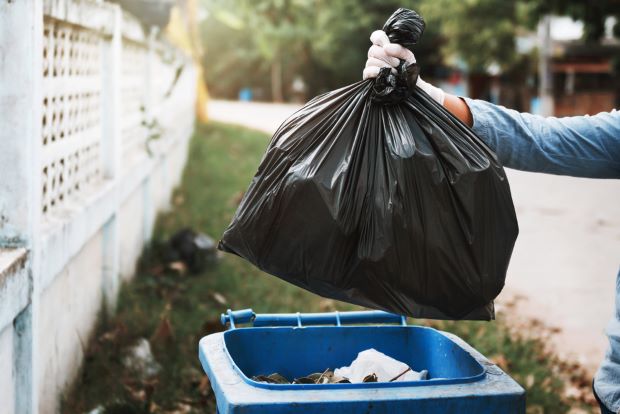

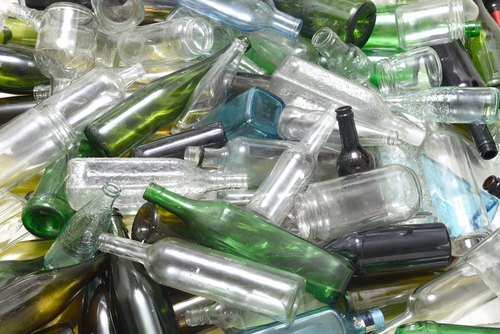
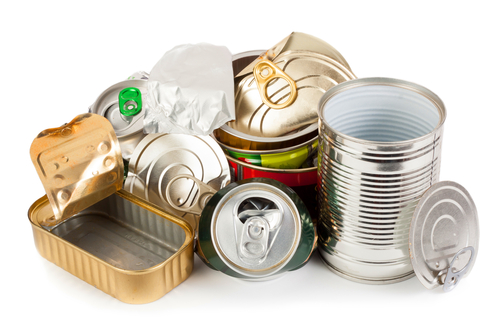
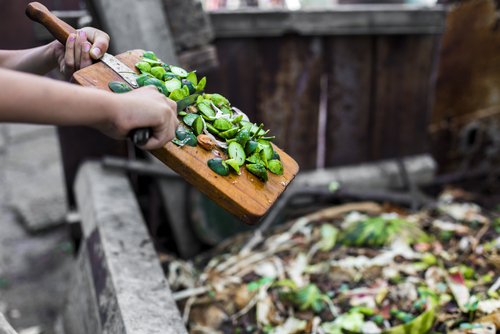


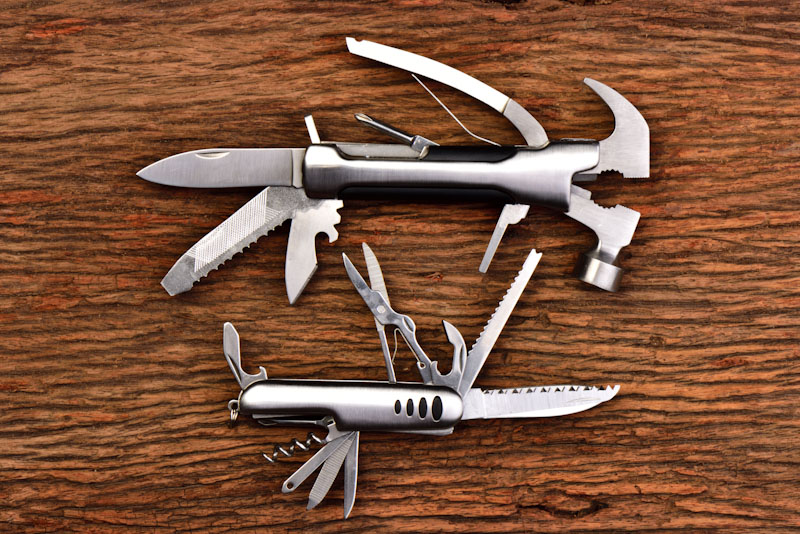
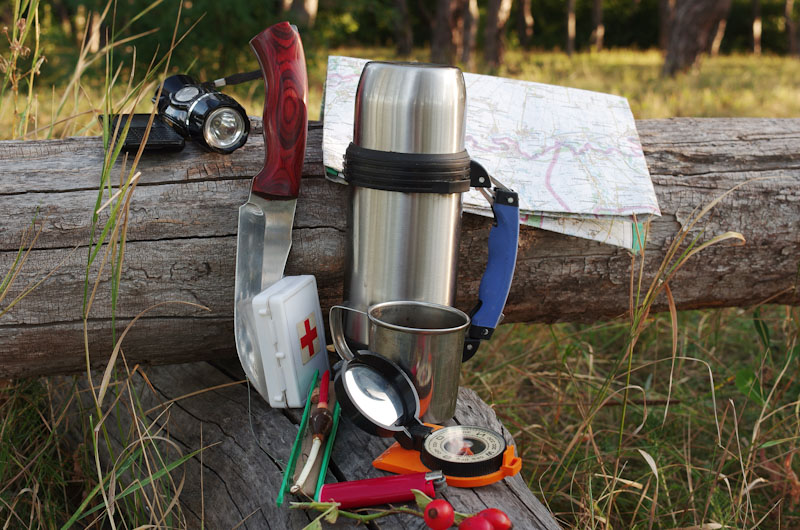
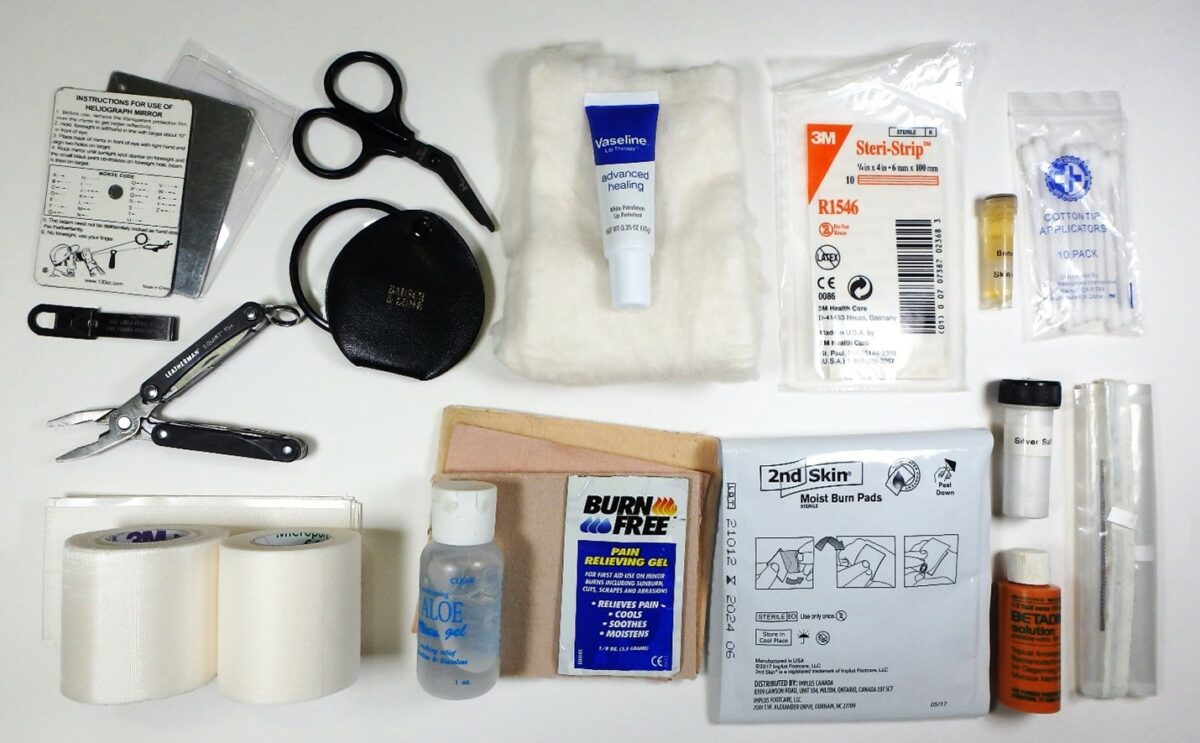


Dave | February 6, 2020
|
Thanks for the tips, Bob! I try to reuse as much of my plastic/glass/metal waste as possible. Saves money in the long run, too.
Deborah | February 6, 2020
|
I’ve used empty clean cans to make candles in. I’ve also used glass yogurt containers to make candles in. I have mason jars that I use and reuse. I try to reuse as much as possible. To me it makes good sense. I feel that we already are living in a disposable society. Hardly anything is ever repaired. Most just buy a new one. I’m a 68 year old female and grew up with grandparents and a parent who believed in being prepared. They gardened and put food up. They bought extras when they could. I’m proud that I learned what I did from them.
Mike | February 6, 2020
|
Nice article for daily conservation. But – if “teotwawki” occurs, there will be less waste available than shown in movies. Electricity stops, everything stops that makes recyclable materials. We will have what we have on hand at the time and those limited items must be utilized with thought and ingenuity. And trash MUST be hidden to avoid perception of having resources. Thanks for the ideas!
Illini Warrior | February 7, 2020
|
one of the MOST important reasons to begin a post serious SHTF garbage re-cycling effort is OPSEC …
sending out tell tale signs of your above average survival – like food scraps and all kinds of food related packaging – will come back on you with vengeance …
and obvious disposal of the same by other means like burying & burning is also a serious OPSEC break …
TWP | February 7, 2020
|
I would advise using caution when recycling, particularly if dumpster diving is involved. Be aware of the spreading Corona Virus. It might not be in your neighborhood right now, but there does not appear to be a way to stop it, right now.
Ronald | April 20, 2020
|
Great tips! I try to find good re-uses for plastic and metals whenever possible already. But I never thought about some of this other stuff.
Deborah | May 24, 2020
|
Great post! I’ve been reusing a lot of items that most throw away. Jars, and cans are a couple. I store food in the jars, glass and plastic. And the cans are used as plant starters, or candles.